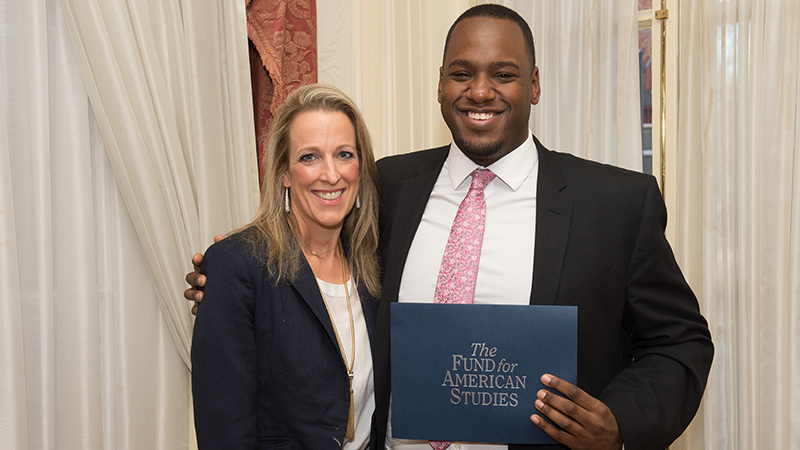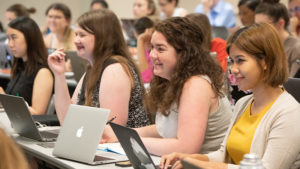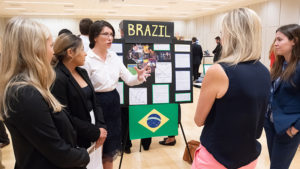
This article originally appeared in The Washington Examiner.
The free exchange of ideas and the need for respectful disagreement are both ingrained in our shared political culture. From the beginning, our nation has been defined by a willingness to allow citizens with diverse viewpoints to engage in good-faith, fact-based debates in pursuit of truth. For more than 240 years, Americans have repeated this process time and again to resolve disputes, realize shared goals, and advance our nation’s interests.

Unfortunately, in these politically charged times, the opportunities for open-minded discussions occur significantly less often. Some question whether honest debate can really accomplish anything, while others doubt that truth even exists anymore. But even here in D.C. we’ve found that the free exchange of ideas still retains its power to change minds. All lovers of liberty should be encouraged.
Each summer and semester, The Fund for American Studies brings hundreds of college students, including Republicans, Democrats, and independents from all walks of life, to D.C. for programs that prepare them to be future leaders of our society. They participate in courses on topics like public policy, economics, international affairs, business, leadership, and community service. They are also placed in internships that give them practical experience to launch their careers.
When ideas are allowed to flourish, liberty wins. When economic liberty and individual empowerment are matched up against economic planning and collectivism on an even playing field, it’s no contest. Despite all the distractions and disruptions of our modern society, these classical American beliefs and ideals still retain their fundamental power.” – Dr. Anne Bradley, George and Sally Mayer Fellow for Economic Education and TFAS Academic Director

On the first day of each semester, students are asked to take a general survey on their economic beliefs. They are not graded, rather, the survey attempts to measure their feelings about broad concepts like capitalism, socialism, property rights, and government regulation. Most students are not economics majors, and may have never subjected their gut feelings on these topics to serious academic scrutiny.
For the rest of their time in the program, students engage in a rigorous course of study designed to stimulate their intellectual curiosity. They hear lectures from eminent leaders in academia, business, and government. They participate in internships at some of Washington’s most prestigious organizations. They engage in honest debate with others who may not share their beliefs. In short, they’re challenged day in and day out. All their preconceived notions are repeatedly tested by their professors and peers alike, and what we find is that when they are willing to challenge formerly held beliefs using the economic way of thinking, they often see things in a new way — and they are both challenged and empowered in that.
Having completed this curriculum, the students then take the same economic survey again on the final day of the program. The results might surprise you.
In our most recent class, the number of students showing a preference for market-based economic systems increased 17 percent over the course of the program. Their support for democratic socialism dropped 11 percent. Students’ understanding of incentives and their role in allowing markets to function went up 24 percent. When it came to the idea of how best to advance our society’s overall well-being, their trust in the free market and the private sector to solve those issues jumped 28 percent. And, we’ve seen similar results each time we’ve conducted the survey.
Why does this matter? Simply put: When ideas are allowed to flourish, liberty wins. When economic liberty and individual empowerment are matched up against economic planning and collectivism on an even playing field, it’s no contest. Despite all the distractions and disruptions of our modern society, these classical American beliefs and ideals still retain their fundamental power.
President Ronald Reagan was right when he said that “freedom is never more than one generation away from extinction. We didn’t pass it to our children in the bloodstream. It must be fought for, protected, and handed on for them to do the same.”
All lovers of liberty must continue to push for these ideas at every turn. This means supporting free speech, even when we don’t agree with it; protecting intellectual freedom, even when certain ideas are considered unfashionable; and promoting honest debate, even when it feels uncomfortable in our risk-averse culture. If we stay firm to our highest ideals, I’m confident we’ll make good on our promise to the next generation.

